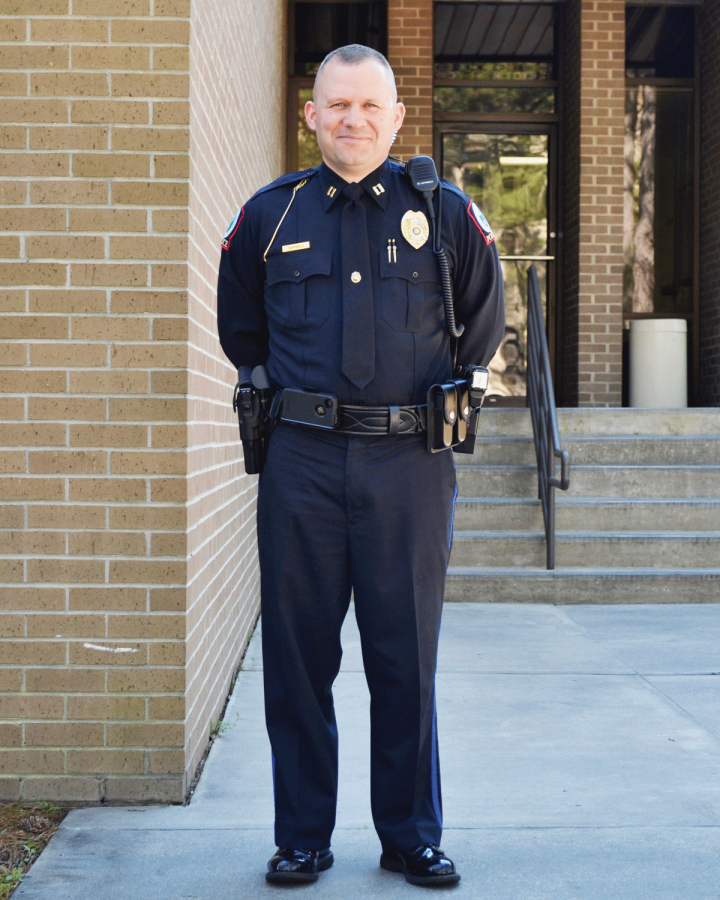Francis Marion University (FMU) law enforcement can now patrol and secure the campus more effectively due to administration funds that have provided officials with better technology and increased staffing.
Captain Donald R. Tarbell spoke about the efforts his team has made and explained that the addition of younger members has contributed to the patrol’s success.
“Our department does a good job of staying abreast of new technology,” Tarbell said. “The qualities of the officers we have are keeping up with the emergence of technology. [Our younger staff members] are more accustomed to the advances of this culture.”
According to Chief of Police Richard J. Austin, two new projects, narrowbanding and SD card system recorders, have improved communication services and surveillance techniques.
Narrowbanding, implemented in January by the Federal Communications Commission (FCC), required public safety users to carry handheld radios with greater spectrum access and efficiency. The improved spectrum access helps the department respond more effectively to emergencies by providing them with broader and clearer communication.
System recorders with SD cards have replaced VHS surveillance technology. The new SD systems are more advanced in capturing violations because they record at all times and activate immediately during a chase.
With a team of 15 members, sufficient employment has also allowed the department to expand its patrolling area. Officers are stationed at the Performing Arts Center (PAC), the PAC Sound Center and will also patrol the FMU Health Sciences Building when it is constructed.
Austin explained the significance of working within the force and spoke positively about department relations.
“Our greatest benefit is the caliber of the people that are in the community,” Austin said. “We are able to talk with everyone and we get to work closer with them.”
Tarbell shared his views about the duties of campus officers and said that his team will continue to make advances in its patrolling techniques.
“Our mission is to support the safety and security of the students, faculty and members of the surrounding community,” Tarbell said. “We are constantly looking for ways that we can better provide that service.”
